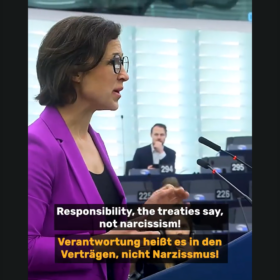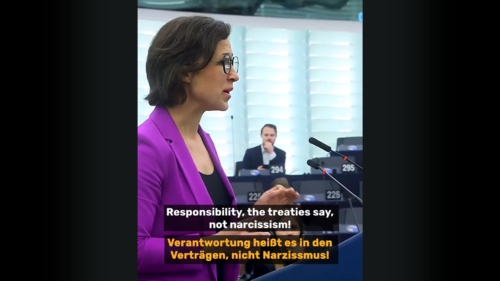Human rights defenders around the world are fighting for human rights, the rule of law, climate protection and democracy – the very values that are so important to us in the EU.
However, they often risk their lives doing so. The number, scale and severity of attacks on human rights defenders have increased significantly: They and their families are intimidated, subjected to smear campaigns, imprisoned on trumped-up charges, and in the worst cases murdered. Women, members of the LGBTQI+ community and environmentalists are particularly vulnerable. What can the EU do in this context?
A key tool to support human rights defenders at risk who do their work outside the EU is to provide them with visa to enter the EU. But still, in many cases, it is extremely difficult to obtain them. And even if human rights defenders make it to the EU, they often are not given the support they need. I wanted to know more about the extent of the problem and how to address it. So the Committee on Human Rights and the Committee on Civil Liberties, Justice and Home Affairs requested the EU Fundamental Rights Agency, based on my proposal, to draw up a study on this exact topic.
Today, the study titled “Protecting Human Rights Defenders at Risk – EU entry, stay and support” was published.
Key Findings
The study provides an in-depth analysis of the risks and challenges faced by Human Rights Defenders who want to enter the EU, drawing i.a. on my report on Human Rights Defenders published in March. It clearly shows that protection at present is patchy and that obtaining visas can be a challenging process (lengthy procedures, documents required that are difficult to obtain, legal venues not accessible to defenders in remote areas, etc.). Moreover, often, only short-term visas are provided to Human Rights Defenders. If they want to stay longer, they need to apply for international protection – which means that they cannot travel back to their country.
Case 1
An Afghan Human Rights Defender, who supported Amnesty International with carrying out research in Afghanistan, managed to flee to Iran in 2022 but remained at risk. Amnesty International assisted them with their visa application for France – but the whole process was severely delayed. Despite much advocacy by civil society, they are still, today, waiting on a decision by the French authorities, over a year after the initial application had been filed.
(Source)
Case 2
A Human Rights Defender from Kurdish Iraq wants to resettle to an EU country. The defender’s family is being persecuted, so it is difficult to travel away from home. But the EU country where the defender wants to relocate to has made it mandatory for residence permit applicants to have their passports verified at a consulate/mission. So the defender must travel to Baghdad twice, even though both journeys come with a high risk of violence: to have their passport verified, and to pick up their proof of residency/visa.
(Source)
Recommendations
The study clearly shows that the European Commission and Member States need to act more consistently and in a coordinated manner, and that authorities in Member States must better respond to the needs of Human Rights Defenders. Recommendations include:
– Using the flexibility that EU visa law already provides
– Expanding existing protection programmes
– Providing more adequate support for Human Rights Defenders during their stay (e.g. housing, access to health care …) to enable them to continue their work
– Reviewing legal tools such as the Visa Code, the Visa Information System and the European Travel Information and Authorisation System, taking into account the challenges Human Rights Defenders face
– Improving awareness on Human Rights Defenders and their specific needs
Next Steps
This study shows that we need to get better when it comes to visa access for Human Rights Defenders and their stay in the EU. Statistics from Spain and the Netherlands (which are also mentioned in the study) show that the vast majority of Human Rights Defenders return to their home countries to continue their human rights work after their stay in the EU – less than 10 percent file an application for international protection. This fact should be reminded to all those EU and member state asylum and migration officials! Human Rights Defenders are doing invaluable work in their countries, and they are defending the values we also stand for. That’s why I will continue to push for improvements.
Amongst other things, I will be speaking at a conference on visas for Human Rights Defenders organised by the Spanish Council Presidency in October. The aim of the conference is to bring together representatives of EU member states and other stakeholders. I will of course keep you posted about the outcome.












